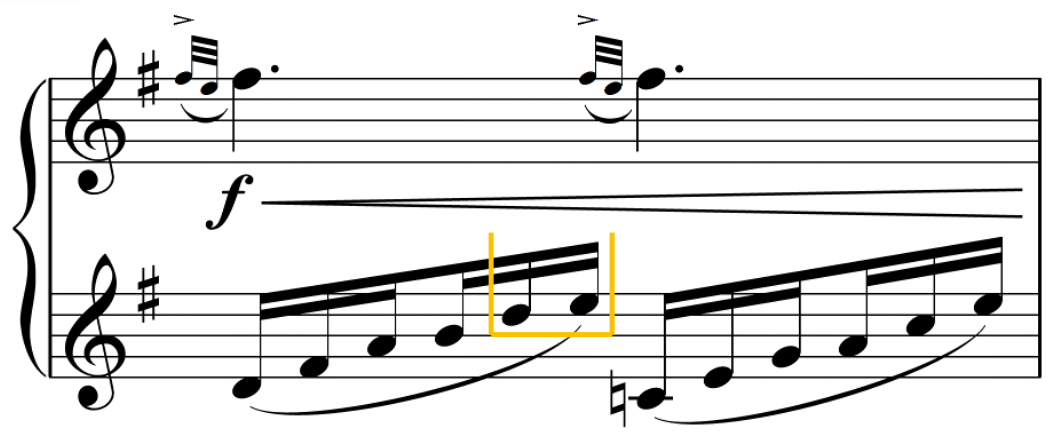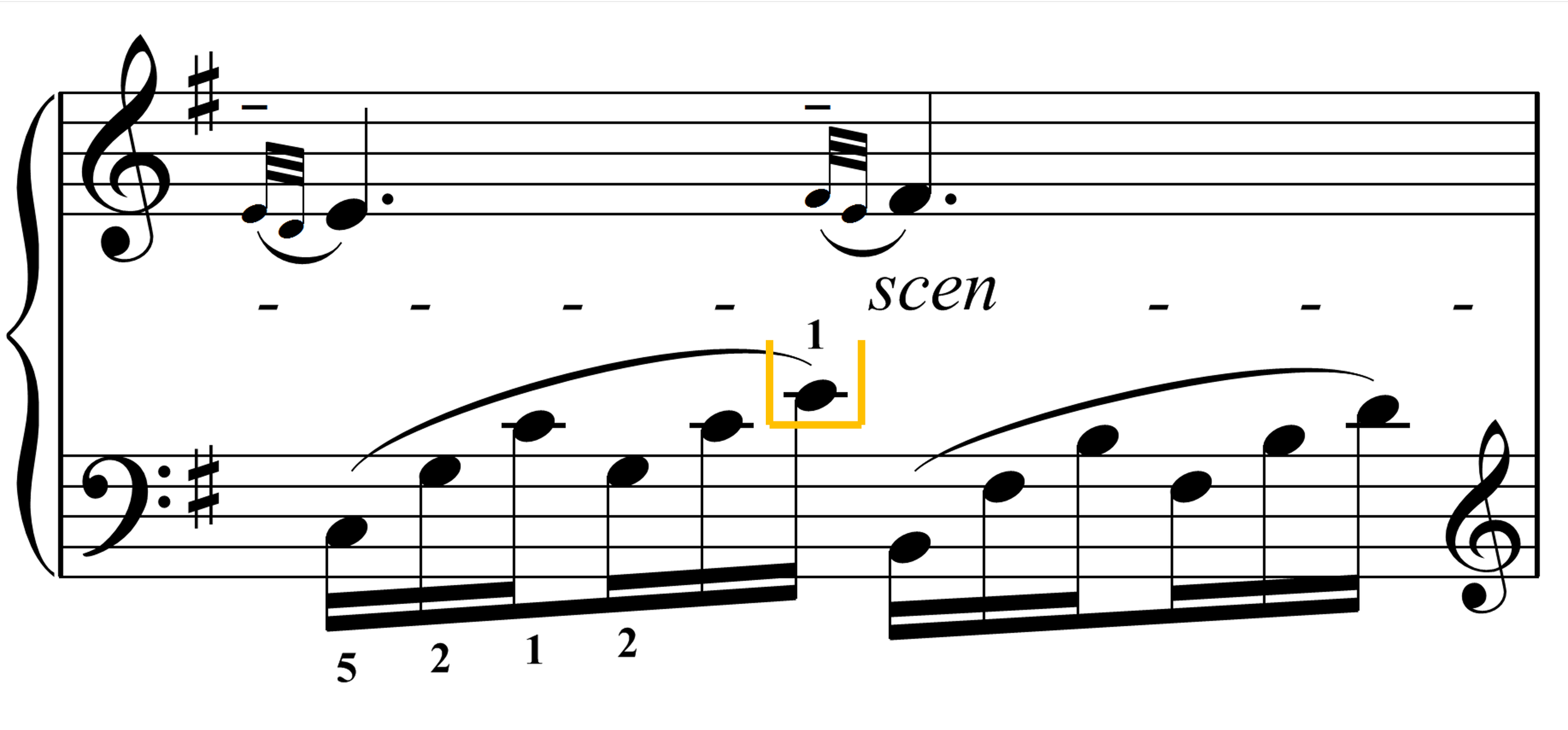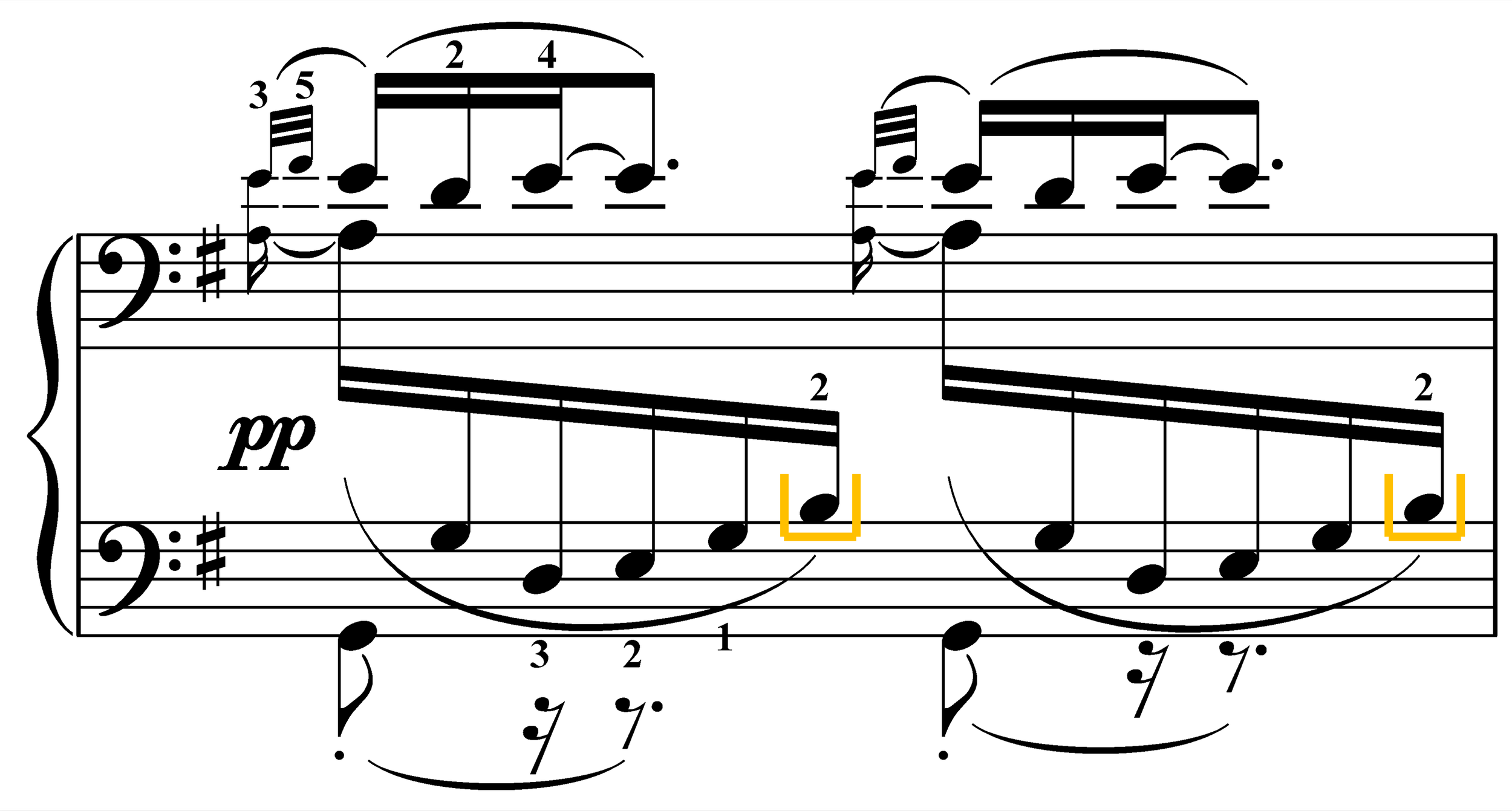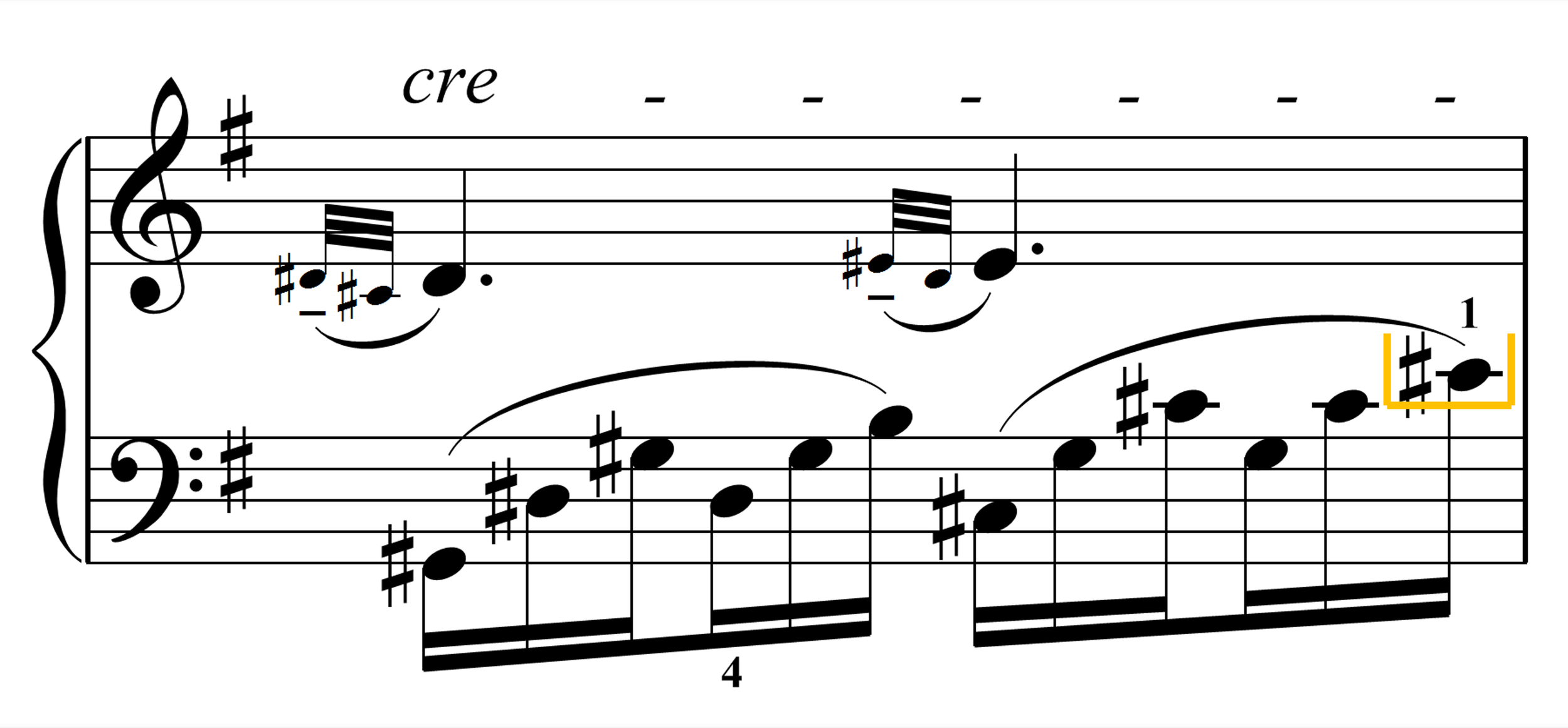SPECIAL COLLECTION | Dorothy Brandwein’s Ravel Fingerings
Published on 5/2/2022 with the author’s permission
First appeared in Dorothy Woster Brandwein, "Divisi Fingering in Selected Passages from Ravel's Solo Piano Works" (DMA diss., University of Missouri–Kansas City, 1981), 29, 113.
27–28: “The pianist who performs Ravel's virtuosic music must be able to blend the numerous notes into horizontal layers of sonority. By choreographing rapid figuration with an economy of hand, wrist, and arm motion, he can avoid abrupt shifts and jumps in hand positions which threaten the fluidity of Ravel's writing.... If both hands are used, the wide leaps in the accompaniment pattern do not disturb the rhythmic flow of the sixteenth notes.”


















